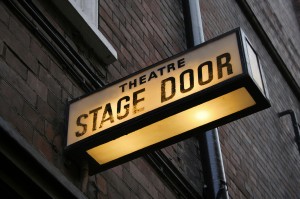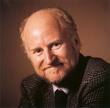An earlier version of this post was published as “What Role Were You Born to Play?” in June 2009.
When you’re feeling creatively stuck, it’s time to identify those inborn talents of your youth – the ones that went into hiding as you morphed into an adult – and rediscover your Theatrical Intelligence.
Try this:
Think back to your childhood. Remember the neighborhood where you grew up?
Close your eyes, take a deep breath, and inhale the smell of that long ago place. If the neighborhood isn’t quite clear for some reason, or if you moved around a lot, breathe in a moment or two of shared secrets with your closest friend…
As you’re breathing, ask yourself: Was there a time when you and your friends decided to put together an event of some kind? A gymnastics demonstration? A neighborhood circus with performances by your pets? Maybe a swimming show with a lemonade stand? Whatever it was, your part in this event made you really proud.
Write down what you remember. I’m willing to bet that your actions resemble one or more of The 8 Roles of Theatrical Intelligence, listed below:
1. The WRITER: You had an idea and wrote it down. You understood the concept: tell the audience, tell them again, and tell them that you told them; with humor, drama and clarity.
2. The ACTOR: You performed. You lived moment-to-moment. You understood that timing is everything, and that theatre isn’t larger than life – it is AS LARGE as life!
3. The DIRECTOR: You “saw” the ideas as if they already existed, then staged it to please the audience. Your friends placed their trust in you because you gave them positive feedback about their strengths, and you made them feel good about themselves.
4. The PRODUCER: You thought up the whole event, assigned your buddies the tasks that matched their strengths, sold the idea to everyone in the neighborhood and got them to pay for tickets. You invited everyone you saw, and one restaurant owner was so enthusiastic he threw an after-show party at your request.
5. The DESIGNER: You envisioned the environment for the event. You drew it with vivid strokes and it took on a life of its own. You told your friends what to build, what to wear and why they had to wear it in spite of their objections (and they thanked you for it afterwards!)
6. The STAGE MANAGER: You knew that your best buddy’s vision could be built. You crafted the schedule as to what had to be done by when, so your friends would have a chance to practice. You arranged parking places for bikes, strollers, cars, and managed the traffic and access to rest rooms.
7. The TECHNICIAN: You made calculations from your friend’s drawings, found the right person to donate materials and stayed up all night building the set. You finished on time, and with no budget. When people got nervous and asked “What’s happening?” you replied “Workin’ on it!”
8. The CRITIC: You recognized problems from the get-go, and knew that if the project had been approached from a different perspective it would have worked better. But heck, it was fun, and set the precedent for the next time. You wrote a flattering article for the Neighborhood News, in which you had instigated the “Kids’ Column”.
Do any of these roles sound familiar?
As kids, chances are that we played at least two roles with complete abandon. And as we morphed into grown-ups, many of us ended up playing a role that didn’t quite fit.
- What was the role (or roles) that you played?
- Are you currently playing one of them in your daily life?
- If not, when did it (or they) go underground?
- What was it about the event that made it so unforgettable?
- Can you imagine experiencing it again?
The goal of Theatrical Intelligence is to IDENTIFY the roles that gave you such joy and freedom as a child, TAP INTO that creative pulse you’ve been craving, and USE IT in your daily life.
Once you’ve experienced that pulse, it will keep on beating. Hold it close to you. Unexpected opportunity awaits.


Recent Blog Comments